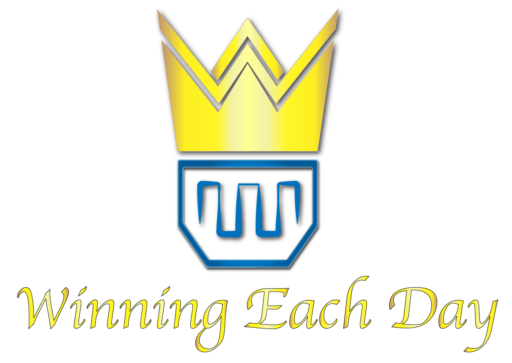|
LISTEN TO POST:
|

Sir Alex Ferguson’s departure in 2013 marked the end of an era for Manchester United. The club faced the daunting task of rebuilding while trying to maintain its legacy. Transitioning from Ferguson’s leadership, United experienced several managerial changes, each bringing new strategies but lacking consistency. From David Moyes’s brief tenure to Erik ten Hag’s arrival, every shift introduced fresh hopes for a return to success. However, a true resurgence remained elusive.
Now, under the ownership of INEOS, led by Sir Jim Ratcliffe, United enters a new phase. This partnership promises a long-term vision focused on revitalizing operations, infrastructure, and playing style. Let’s explore Manchester United’s journey post-Ferguson, the impacts of its managerial transitions, and the transformative role of INEOS in shaping the club’s future.
The Post-Ferguson Era: Navigating Uncharted Waters
When Sir Alex Ferguson retired in 2013, Manchester United faced the challenge of replacing a manager with 38 trophies over 26 years. The club chose David Moyes, then manager of Everton, believing his Premier League experience would ensure a smooth transition. However, Moyes’s tenure was brief. He was dismissed before completing a full season. United finished seventh, missing out on European competition for the first time in over 20 years. This period revealed the difficulty of maintaining stability and success after Ferguson’s departure.
Louis van Gaal: A Tactical Overhaul
In 2014, United appointed Louis van Gaal, a manager renowned for his tactical acumen and experience with top European clubs. Van Gaal introduced a possession-based style, emphasizing structured play and defensive solidity. His tenure saw the emergence of young talents like Marcus Rashford and the acquisition of high-profile players such as Ángel Di María and Bastian Schweinsteiger. Despite winning the FA Cup in 2016, Van Gaal’s approach was often criticized for being overly cautious, leading to a lack of attacking flair. The inconsistency in performances and failure to secure a top-four league finish resulted in his departure after two seasons.
José Mourinho: The Quest for Immediate Success
José Mourinho took charge in 2016, known for his winning record and pragmatic approach. In his first season, United won the EFL Cup and the UEFA Europa League, bringing silverware back to the club. Mourinho focused on rebuilding the squad, spending heavily on players like Paul Pogba and Romelu Lukaku. Despite this, internal conflicts and public criticism of players led to unrest. His defensive style also drew negative feedback. Poor results in the 2018-2019 season led to his dismissal in December 2018.
Ole Gunnar Solskjær: A Nostalgic Return
Former United striker Ole Gunnar Solskjær was appointed as interim manager following Mourinho’s departure, bringing a sense of nostalgia and optimism. His initial success, including a remarkable comeback against Paris Saint-Germain in the Champions League, earned him a permanent contract. Solskjær focused on rebuilding the squad with a long-term vision, promoting youth players and signing talents like Bruno Fernandes. Despite reaching multiple semi-finals and a Europa League final, Solskjær’s tenure was marred by inconsistency and a lack of tangible success, leading to his departure in November 2021.
Ralf Rangnick: The Interim Strategist
In an unconventional move, United appointed Ralf Rangnick as interim manager in December 2021, with plans for him to transition into a consultancy role. Known for his influence on modern pressing tactics, Rangnick aimed to instill a high-energy style of play. However, his tenure was short and challenging, with the team struggling to adapt to his methods amidst a congested fixture schedule. Rangnick’s brief period in charge highlighted the difficulties of implementing significant tactical changes mid-season.
Erik ten Hag: A New Dawn
In April 2022, United announced Erik ten Hag as the new permanent manager, effective from the 2022-2023 season. Ten Hag, who had achieved success with Ajax, was tasked with restoring United’s competitive edge. His tenure began with promise, including a League Cup victory, but was also marked by inconsistency and challenges in squad cohesion. Despite efforts to implement a progressive style of play, Ten Hag’s time at United was cut short following a series of disappointing results, culminating in a 2-1 loss to West Ham.
The INEOS Era: A New Chapter
In December 2023, Manchester United entered a new phase with INEOS, led by Sir Jim Ratcliffe, acquiring a 25% stake in the club. This investment was aimed at revitalizing the club’s football operations and infrastructure. INEOS’s involvement brought a strategic focus on long-term planning, data-driven decision-making, and significant investment in facilities, including plans for the redevelopment of Old Trafford. The partnership signaled a commitment to restoring United’s status as a leading force in football.
Ruud van Nistelrooy: Bridging the Past and Future
Following Ten Hag’s departure, United appointed former striker Ruud van Nistelrooy as interim manager. Van Nistelrooy, a fan favorite, brought a deep understanding of the club’s culture and a passion for attacking football. His appointment was seen as a move to stabilize the team and reignite the attacking prowess that had been lacking. Under his guidance, United went on an unbeaten four game run scoring goals at will.
Rúben Amorim: A Vision for the Future
In October 2024, United appointed Rúben Amorim as the new permanent manager. Amorim, who had achieved success with Sporting Lisbon, is known for his innovative tactics and ability to develop young talent. His arrival is viewed as a culmination of the club’s efforts to rebuild and modernize its footballing philosophy. With the backing of INEOS, Amorim is expected to lead United into a new era of success, focusing on sustainable growth and a return to the club’s attacking traditions.
Conclusion: A Journey of Transformation
Manchester United’s journey since Sir Alex Ferguson’s retirement has been marked by a series of managerial changes, each bringing a unique approach to team building. The involvement of INEOS represents a strategic shift towards long-term planning and investment in the club’s future. With Rúben Amorim at the helm, supported by a robust infrastructure and a clear vision, United aims to reclaim its position at the pinnacle of football. The lessons learned from the past decade serve as a foundation for building a cohesive and competitive team, honoring the club’s rich history while embracing the future.












